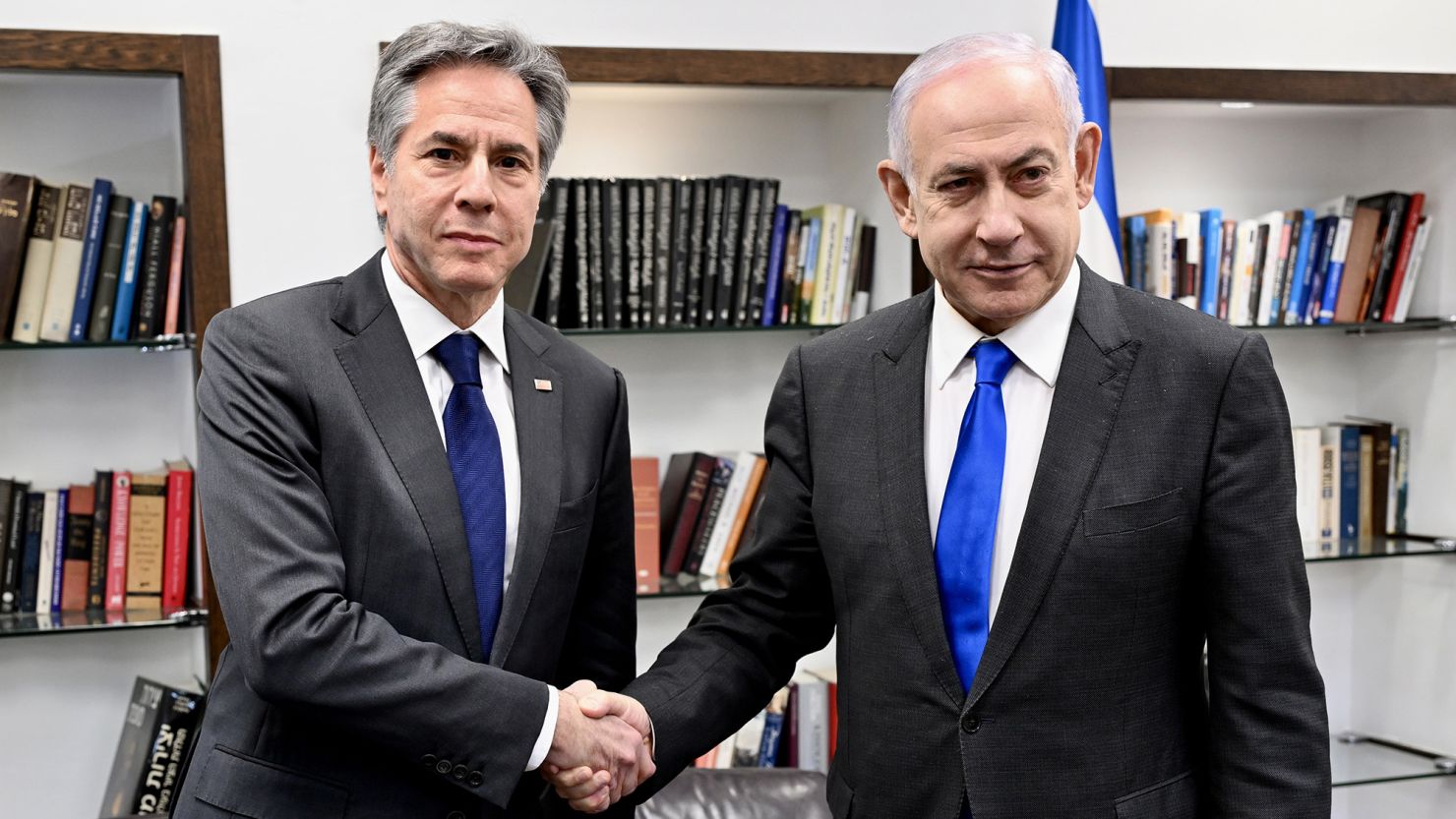Israeli Prime Minister Benjamin Netanyahu stood firm in his rejection of the U.S. Secretary of State’s plea to avoid launching a ground invasion into the southern Gaza city of Rafah.
With resolve, Netanyahu declared on Friday, “We will do it alone” if necessary, indicating Israel’s willingness to take unilateral action in response to the escalating tensions in the region.
The looming prospect of a ground invasion in Rafah has cast a shadow over the ongoing efforts to broker a ceasefire deal between Israel and Hamas, the militant group governing the Gaza Strip.
Secretary of State Antony Blinken, amidst diplomatic maneuvers, acknowledged that “there’s still a lot of work to be done” as he concluded his sixth trip to the Middle East since the conflict erupted.
Netanyahu’s defiance underscores Israel’s determination to address what it perceives as security threats emanating from Gaza, particularly in the wake of intensified rocket attacks targeting Israeli cities. The Israeli government views military action as a necessary measure to protect its citizens and deter further aggression from Hamas.
Israeli Women in Tears (Credits: Express & Star)
However, the prospect of a ground invasion raises concerns about the potential for further escalation and civilian casualties. The densely populated Gaza Strip, home to nearly two million Palestinians, presents significant challenges for any military operation, with the risk of widespread destruction and loss of life.
Despite the growing tensions, international calls for restraint and de-escalation have intensified. The United States and other key players in the global community have been actively engaged in diplomatic efforts to end the hostilities and facilitate negotiations for a ceasefire.
Secretary Blinken‘s repeated visits to the region underscore the importance of finding a diplomatic solution to the crisis. The United States, as a longstanding ally of Israel and a key mediator in the Israeli-Palestinian conflict, plays a crucial role in facilitating dialogue and promoting peace initiatives.
Antony Blinken meeting with Israeli Leaders (Credits: NewLooks)
Achieving a ceasefire remains elusive as both sides remain entrenched in their positions, with Hamas demanding an end to Israeli airstrikes and the lifting of the blockade on Gaza, while Israel insists on security guarantees and an end to rocket attacks.
The situation on the ground remains volatile, with the risk of further violence and humanitarian suffering looming large. The international community, including regional actors and global powers, must redouble their efforts to de-escalate the situation and address the root causes of the conflict.
A sustainable peace can only be achieved through meaningful dialogue, mutual respect, and a commitment to addressing all parties’ legitimate grievances. As the world watches anxiously, the fate of millions of lives hangs in the balance, underscoring the urgent need for a negotiated settlement to end the cycle of violence and pave the way for a peaceful and prosperous future for all.
